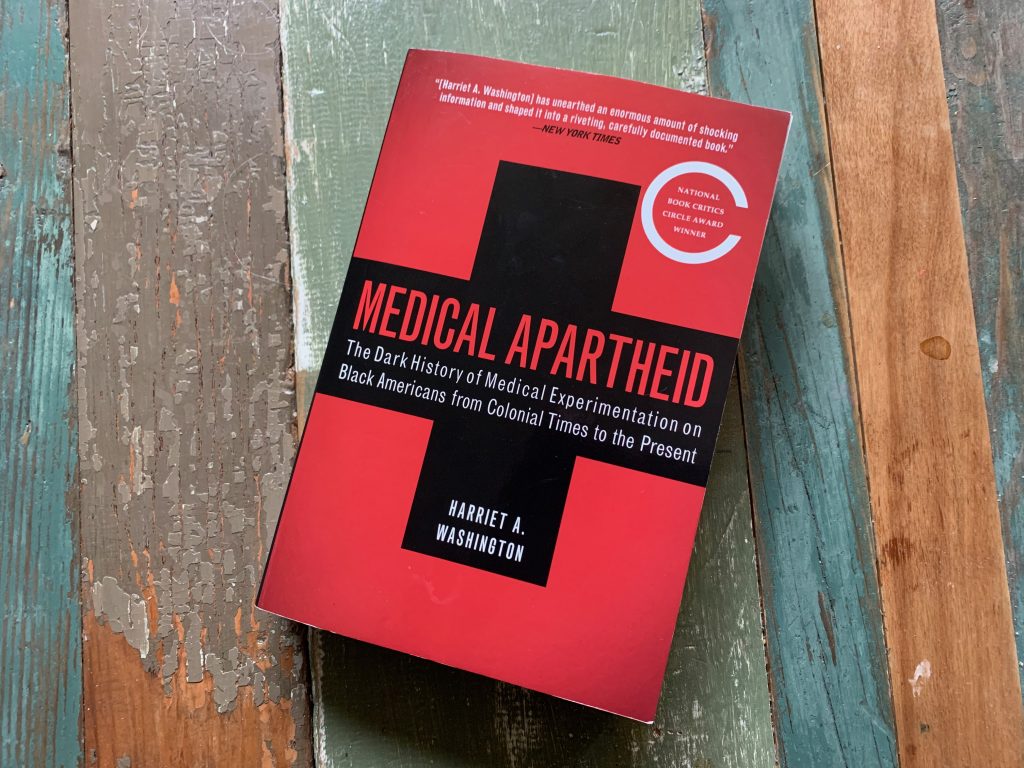Book Club: Medical Apartheid

Medical Apartheid: The Dark History of Medical Experimentation on Black Americans from Colonial Times to the Present is very difficult to read. I stopped and re-started several times. You may know something about the Tuskegee syphilis project, but the wanton use and abuse of Black Americans as medical subjects goes much farther and continues into the present. I was shocked and deeply embarrassed, as an American and as a former scientist. I now have a much deeper understanding of why Black communities mistrust the medical system – they have very good reasons.
The exceptionally well-researched and documented book starts with American colonial doctors buying slaves expressly as “clinical material” for experimentation. Thomas Jefferson tested cowpox inoculation as a smallpox vaccine on 200 of his and his neighbors’ slaves, including injecting one with smallpox to be sure it worked, before he inoculated his white family. Demonstrating a glaring reporting bias, the 1840 Census found that Blacks in Northern states (mostly free) suffered eleven times worse mental health than Blacks (mainly slaves) in the South. The Census was used as “proof” that slavery protected Blacks from the responsibilities of freedom.
The horrors continued past the Civil War to include experimentation onBlacks living in poverty, eugenics, radiation experiments, and unauthorized use of human tissue. In the early 1900’s, thousands of poor Black women experienced the “Mississippi appendectomy” being sterilized without their knowledge during treatment for another condition. Forced sterilization was legal in 17 states in 1934. Phase 1 drug testing for safety and other medical research on Black prisoners was common before the 1970’s. It died out soon after but has had a renaissance since the late 1980s, including in Connecticut. The book outlines instances of coercion and lies, and the lack of informed consent, to obtain Black research subjects.
The author ends with concrete recommendations for researchers and policymakers to restore trust and fix medical research.

